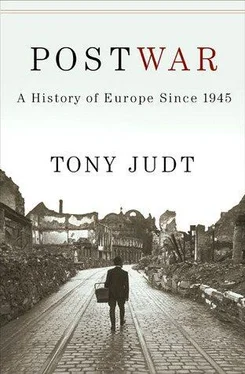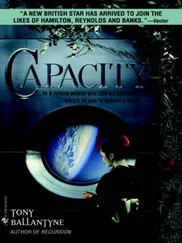It is not a little ironic that Mitterrand’s successors are now having to grapple with the budgetary constraints and social consequences of that same treaty.
Not the least of which was the appointment of Mitterrand’s crony Jacques Attali as head of a new institution—the European Bank for Reconstruction and Development (EBRD)—with a remit to invest in the rebuilding of Eastern Europe. After spending millions refurbishing a prestigious building for himself—but very little on the bank’s putative beneficiaries—Attali was ignominiously removed. The experience did no discernible damage to his considerable self-esteem.
There is some evidence that Gorbachev conceded this crucial point inadvertently, when he acceded in May 1990 to President Bush’s suggestion that Germany’s right of self-determination should include the freedom to ‘choose its alliances’.
In Grass’s view, modern German history consists of a perennial disposition to bloat and expand, followed by desperate attempts at constraint by the rest of the continent—or in his words: ‘Every few years, for our all-German constipation, we are given a Europe-enema.’
Note that just eight weeks earlier Gorbachev had adamantly refused to consider any such change.
The five central Asian republics—Kazakhstan, Kirghizia, Tadjikistan, Turkmenia and Uzbekistan—between them covered more land (18 percent of Soviet territory) than any republic other than Russia itself, although their combined share of Soviet GNP in September 1991 was just 9.9 percent. But their story falls outside the bounds of the present book.
But mostly unpredicted. For an impressive exception, see the essays by Roman Szporluk: written over the course of the Seventies and Eighties and gathered in Russia, Ukraine and the Break-Up of the Soviet Union (Hoover Institution, Stanford, 2000).
And should not be confused with historical Moldavia just across the Prut river in Romania.
The Azeris being of Turkic origin, part of the background to these tensions can be traced to the Armenian massacres of World War One in Ottoman Turkey.
The characteristic Russian self-image, an unstable alloy of insecurity and hubris, is nicely captured in remarks by the liberal philosopher Peter Chaadayev, from his ‘Philosophical Letters’ of 1836: ‘We are one of those nations which do not seem to be an integral part of the human race, but which exist only to give some great lesson to the world. The instruction which we are destined to give will certainly not be lost: but who knows the day when we shall find ourselves a part of humanity, and how much misery we shall experience before the fulfillment of our destiny.’
That is one reason why the end of the Soviet Union was and is a source of genuine regret among many Russians. ‘Independence’ for everyone else meant something gained; independence for Russia itself constituted an unmistakable loss.
Yeltsin received 57 percent of the vote in a turnout of 74 percent.
The exception was French President François Mitterrand, still uncomfortable with the destabilization of eastern Europe and a little too quick to acknowledge the plotters’ success in restoring the status quo ante .
Even in Ukraine, where many Russian-speakers had been wary of talk about national independence, the coup of August had a dramatic impact on the public mood: on August 24th the Ukrainian Supreme Soviet voted for independence, subject to a referendum, by 346 votes to 1. When the national referendum was held on December 1st, 90.3 percent (in a turnout of 84 percent of the electorate) voted to leave the Soviet Union.
The will, but not the means. Had Gorbachev—or the August plotters—chosen to use the army to crush all opposition, it is by no means sure that they would have failed.
This occasioned some ill-feeling among Czechs. On a visit to Prague in 1985 the present author was regaled by liberal Czechs with accounts of the privileges accorded by the regime to the Slovak minority. Schoolteachers from Slovakia—recruited to teach in Prague’s elementary schools and deemed by parents to be hopelessly provincial and inadequate to the task—were a particular target of resentment.
The appearance of a separate Hungarian party reflects the presence on Slovak territory of some 500,000 Hungarians, 10 percent of the population of Slovakia.
Quoted in Mladá Fronta dnes 12th March 1991. See Abby Innes, Czechoslovakia: The Short Goodbye (Yale U.P., Newhaven, 2001), page 97.
The political split proved easier to manage than the economic one—it was not until 1999 that agreement over the division of Czechoslovakia’s federal assets was finally reached.
Zagreb, Belgrade and Skopje (the capital of Macedonia) were all among the fastest growing cities of Central Europe between 1910 and 1990.
‘We shall kill some Serbs, deport others, and oblige the rest to embrace Catholicism’—thus the Ustashe Minister of Religion in Zagreb, July 22nd 1941.
On a ‘fact-finding’ visit to Skopje just after the 1999 Kosovo war the present author was ‘confidentially’ informed by the Macedonian Prime Minister that Albanians (including his own ministerial colleague who had just left the room) were not to be trusted: ‘You can’t believe anything they say—they just are not like us. They are not Christian ’.
This was not, of course, the way things appeared to Croats and others, who could point to Serb domination of the national army (60 percent of the officer corps was Serb by 1984, a fair reflection of Serb presence in the population at large but no more reassuring for that) and Belgrade’s disproportionate share of investment and federal expenditure.
Since ethnic identity in Yugoslavia could not be ascertained from appearance or speech, roaming militias relied on villagers ‘fingering’ their neighbours—families with whom they had often lived at peace, sometimes as friends, for years and even decades.
Between 1992 and 1994 the UN agencies in the Balkans were all but complicit with the Bosnian Serbs—allowing them, for example, an effective veto over what and who could enter and leave the besieged city of Sarajevo.
It was at French insistence that the signing ceremony was held in Paris—an exercise in ceremonial overcompensation that only drew attention to France’s previous reluctance to act against the Serbs.
The NATO-led Stabilization Force was replaced by the European Union’s EUFOR on December 2nd 2004.
The ageing Greek Prime Minister Andreas Papandreou, manipulating nationalist sentiment for electoral advantage, claimed that the term ‘Macedonia’ was part of his country’s ancient heritage and could apply to only the northernmost region of Greece itself. If the Slav state carved out of southern Yugoslavia called itself by that name it must harbour irredentist ambitions. What Papandreou could not acknowldge was that many of the ‘Greeks’ of Greek Macedonia were themselves of Slav descent—albeit officially Hellenized for patriotic ends.
Читать дальше












